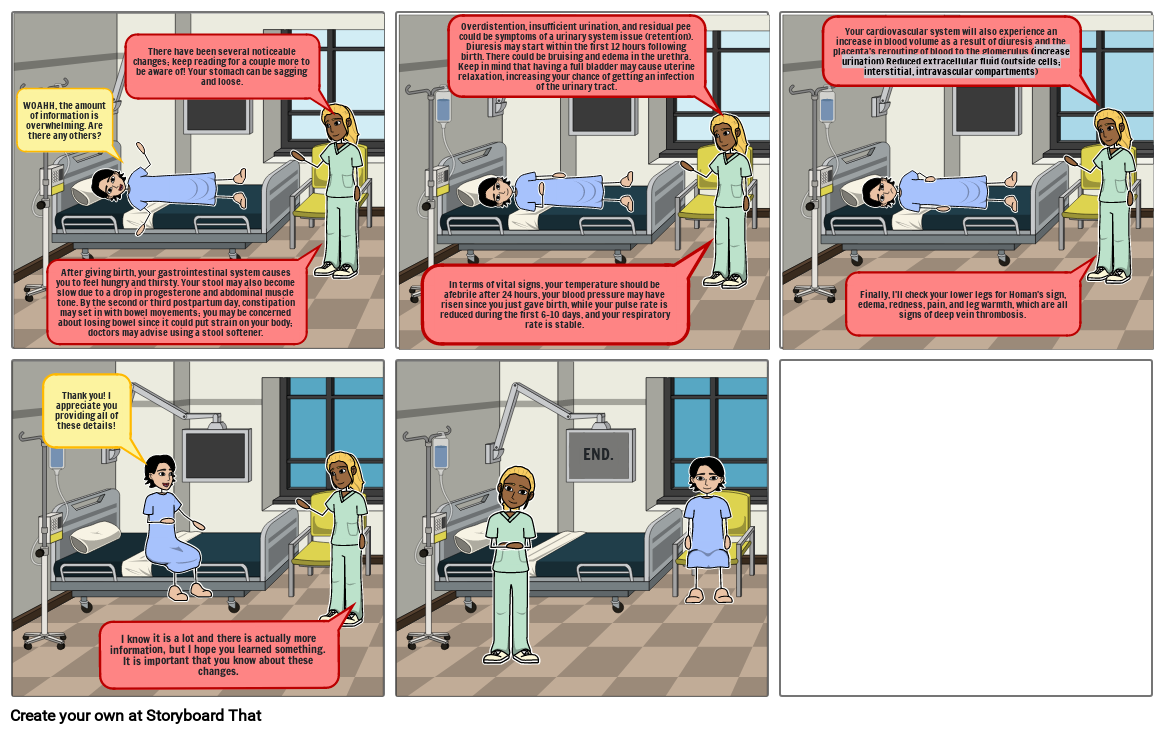Unknown Story

Siužetinės Linijos Tekstas
- WOAHH, the amount of information is overwhelming. Are there any others?
- After giving birth, your gastrointestinal system causes you to feel hungry and thirsty. Your stool may also become slow due to a drop in progesterone and abdominal muscle tone. By the second or third postpartum day, constipation may set in with bowel movements; you may be concerned about losing bowel since it could put strain on your body; doctors may advise using a stool softener.
- There have been several noticeable changes; keep reading for a couple more to be aware of! Your stomach can be sagging and loose.
- In terms of vital signs, your temperature should be afebrile after 24 hours, your blood pressure may have risen since you just gave birth, while your pulse rate is reduced during the first 6-10 days, and your respiratory rate is stable.
- Overdistention, insufficient urination, and residual pee could be symptoms of a urinary system issue (retention). Diuresis may start within the first 12 hours following birth. There could be bruising and edema in the urethra. Keep in mind that having a full bladder may cause uterine relaxation, increasing your chance of getting an infection of the urinary tract.
- Your cardiovascular system will also experience an increase in blood volume as a result of diuresis and the placenta's rerouting of blood to the glomerulus (increase urination) Reduced extracellular fluid (outside cells; interstitial, intravascular compartments)
- Finally, I'll check your lower legs for Homan's sign, edema, redness, pain, and leg warmth, which are all signs of deep vein thrombosis.
- Thank you! I appreciate you providing all of these details!
- I know it is a lot and there is actually more information, but I hope you learned something. It is important that you know about these changes.
- END.
Sukurta daugiau nei 30 milijonų siužetinių lentelių
Nereikia Atsisiuntimų, Nereikia Kredito Kortelės ir Nereikia Prisijungti!
